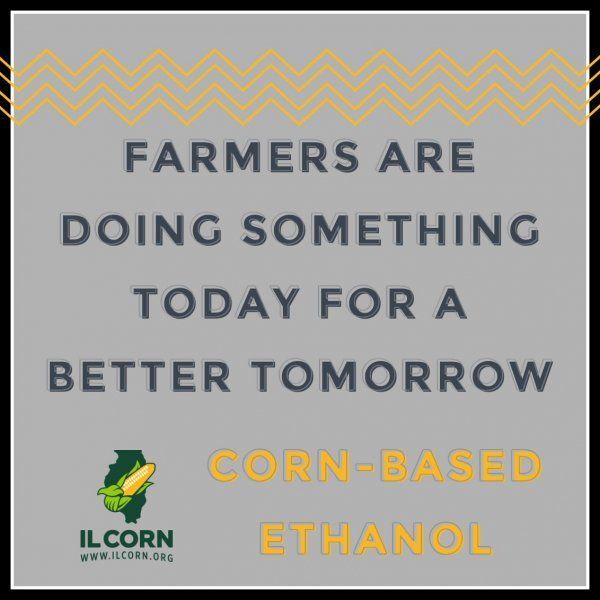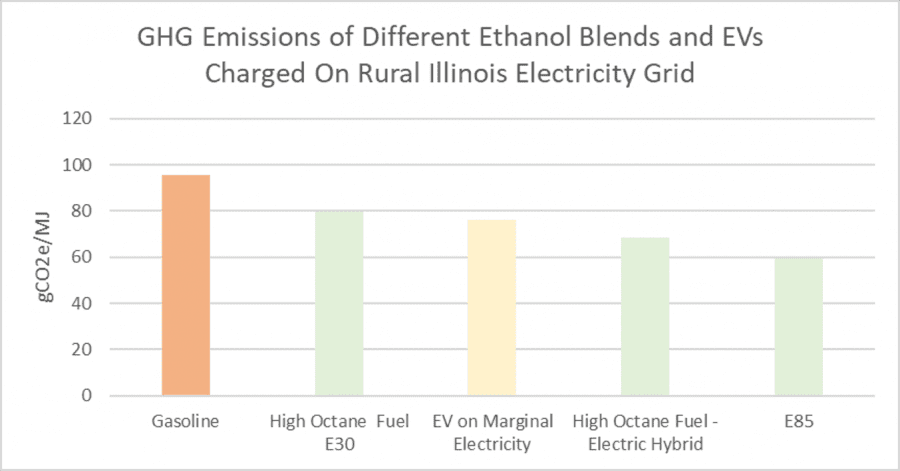IL Corn Disappointed that EPA Ignores Ethanol in Recent Proposal

Today, the U.S. Environmental Protection Agency released a proposal for new greenhouse gas and multi-pollutant emissions standards for light-duty vehicles. The IL Corn Growers Association is extremely disappointed with the proposal’s inability to account for the environmental benefits of low-carbon ethanol which also provides lowest cost octane alternatives.
In 2018, the use of ethanol in gasoline reduced CO2-equivalent Greenhouse Gas Emissions (GHG) from vehicles in the U.S. by 55.1 million metric tons. This reduction in GHG emissions through ethanol production is equal to removing 11.7 million cars from the road for an entire year. The U.S. Department of Agriculture reports corn-based ethanol lowers greenhouse gas emissions up to 52 percent.
“We know corn-based ethanol lowers the United States’ carbon emissions,” said Fairfield farmer and IL Corn Grower President Matt Rush. “American’s need an alternative option to electric vehicle’s limited infrastructure capabilities, and we believe ethanol is this clean energy solution available now.”
University of Illinois at Chicago Principal Economist Dr. Steven Mueller reports high octane fuel with E30 vehicles (HOF) provide comparable greenhouse gas savings to electric vehicles charged on marginal electricity. E85 and HOF hybrid vehicles provide higher greenhouse gas emissions savings than electric vehicles.

Additionally, ethanol powered vehicles are more affordable for consumers. In December 2022, the average price for a battery electric vehicle was $61,500. The industry average for all light duty vehicles was $48,565.
“While we share the administration’s goal of lowering emissions, we are frustrated that EPA appears to be turning exclusively to electric vehicles to lower greenhouse gas emissions,” said National Corn Growers Association (NCGA) in a press release. “The limitations on raw materials, charging infrastructure, consumer preferences, and other factors dictate the need for a wider range of options to immediately mitigate carbon emissions.”
The IL Corn Growers Association and NCGA champion the the Next Generation Fuels Act, introduced in both the House and Senate in March, as a solution for cleaner energy and higher-octane fuel.







